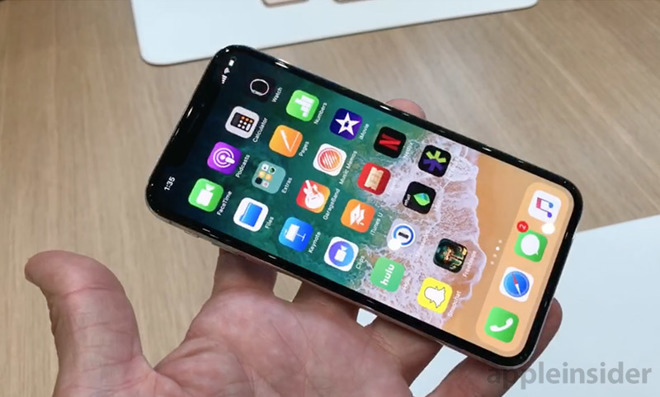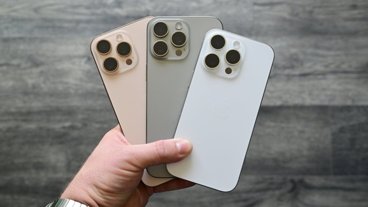In the latest patent infringement suit against Apple, Singapore Asahi Chemical & Solder Industries PTE Ltd. has brought suit in Ohio, alleging that the company infringed on its solder patent in the manufacturing of several different iPhones.
The latest in a seemingly endless series of patent infringement lawsuit against Apple has been filed in U.S. District Court in Ohio. In it, a Singapore-based concern called Singapore Asahi Chemical & Solder Industries Pte Ltd. alleges that Apple has infringed on its patent for a lead-free solder, in the manufacturing of several products, including the last five iPhones.
The patent, issued in 2001, applies to "solder alloys with improved physical and chemical properties that comprise effective amounts of tin, copper, silver, and bismuth."
The suit alleges that Apple "is selling certain consumer electronics that incorporate the claimed technology." It specifically names the iPhone 7, iPhone 7 Plus, iPhone 8, and iPhone 8 Plus, as well as the iPhone X, as products that infringe upon the patent.
The claim does not list a dollar amount being sought. Asahi is seeking a jury trial, as well as an assessment and award of damages, treble damages, and payment of attorney's fees.
The suit was filed in Ohio because the company to which the inventors assigned the patent rights, H-Technologies Group, Inc., is based in that state. The plaintiffs also state that the court in Ohio has jurisdiction over the case, as Apple operates at least four retail stores in that state.
Many patent suits
Apple and Samsung's seemingly never-ending litigation over iPhone patents finally wrapped up last month, but that's far from the end of Apple ending up on the receiving end of such suits.
The Singapore suit is at least the third patent litigation filed against Apple just since the start of July. SMTM Technology, known as a patent troll, sued Apple over its "Do Not Disturb While Driving" feature earlier this month, while another company, Advanced Voice Recognition Systems, Inc. (AVRS), sued over Siri's Internet access the same week.
 Stephen Silver
Stephen Silver






-m.jpg)






 Charles Martin
Charles Martin


 Wesley Hilliard
Wesley Hilliard

 William Gallagher
William Gallagher

 Marko Zivkovic
Marko Zivkovic








22 Comments
THAT DOES IT! I'm buying stock in a spirits company.
So if I buy some solder from a hardware store and use it in a product I end up selling, do I have to pay royalties to the solder company? This has gone beyond being crazy. Next thing someone will patent a process for using water and anyone who uses water in their products will be sued.
There really is a point where plaintiffs need to demonstrate not just an "idea" but also a tangible method of accomplishing any given idea. It's one thing to patent the idea, say, of "a craft that can escape our gravity and orbit earth". It's entirely another thing to build one that can do just that. So often these days, it seems like our broken patent system is enabling the kind of suits based almost entirely on the former notion, that the simple idea of an "orbital craft" is patentable, even if there is no tangible method given for accomplishing it. That's not what patents were ever intended for. In this case, listing a few ingredients that might go into a "solder recipe" and then claiming ownership of that is ludicrous. If they had a very specific set of compounds in very specific amounts that gave the solder a very specific set of desirable properties, then yes, patent away... Apple does indeed set the specs for such components, and may have even asked specifically for a "lead-free" solder that had a similar list of ingredients. They don't manufacture that stuff, so why are they the object of the suit? Because Ohio, and our broken system. "Singapore Asahi" certainly couldn't bring this frivolous suit to bear in Singapore, I can almost guarantee it.